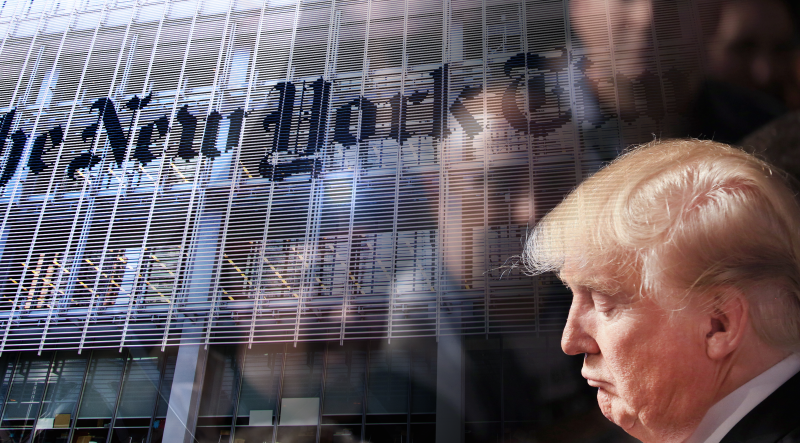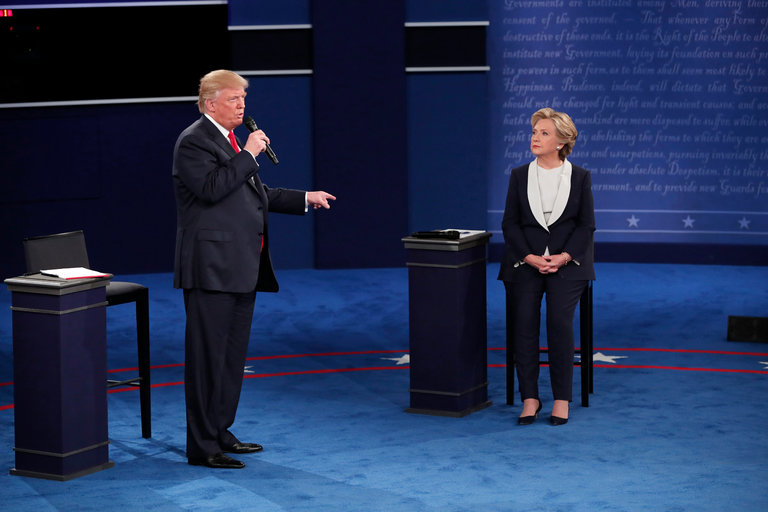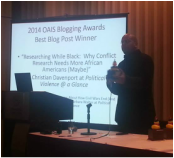The spin (now meme) is an interesting continuation of the one discussed last week. This is the bad part. The author continues to try to make the case that Trump's candidacy evokes images of authoritarian and weak democracies in other countries. For example, Fisher makes the point that Trump is using a page from the "dictator's playbook" blaming a potential loss on fraud which not only identifies democracy as being flawed but also that there are "shadowy forces" out there that are running the show.
I argue that this framing (while entertaining and should be pursued to better contextualize American politics) ignores problems of American democracy and authoritarianism. Yes, I mention American authoritarianism because one of the most problematic assumptions being made in not only the Fisher article but many articles coming out now is the unchallenged point the America is and has been a democracy. This is actually a contested point, something that Ralph Bunche's The Political Status of the Negro in the Age of FDR, Kim Hill's Democracy in the Fifty States and (my colleague) Robert Mickey's book Paths Out of Dixie: The Democratization of Authoritarian Enclaves in America's Deep South, 1944-1972 reveal quite clearly. Actually, if you consider the various definitions of democracy with something that could serve as a good start to the conversation - the Varieties of Democracy project you see that the democraticness of US is highly variable. No need to look abroad (at least not exclusively), we have had plenty of authoritarianism right here.
I was thus taken aback when Fisher and the Times make the claim that "Mr. Trump, whether he knows it or not, is following a playbook - one that scholars could not recall being used before in modern American politics". "Well, yes", I thought. "That would be the case if you ask some comparativists and IR scholars." One could consult scholars of C. Wright Mills and the early Robert Dahl to ask if there was a belief that some "shadowy force" ruled American politics. The elite power debate actually dominated much of American political science for a while. Again, no need to look elsewhere. Ask Noam Chomsky (him you have heard of) or Bob Avakian (him you might not have heard of). They would tell you: we got your authoritarianism right here. These two authors/thinkers should be added to the usual suspects being called on by Fisher and the Times. Or expand to the list of repression and America authors I mentioned in my last blog or found on repression.com.
The pitfalls of the current spin/meme ignores other work/history as well. It has been argued that in certain respects American faith in their political system has not really recovered from the subversion of democracy offered by Richard Nixon with Watergate as well as the broader campaign of surveillance/theft/intimidation. Factor in J. Edgar Hoover and Cointelpro, Oliver North and Irangate, Johnson's solidification of the "War on Crime" along with the mass incarceration/punitiveness that accompanied it and Bush's misleading of the American people in attacking individuals/invading countries that had nothing to do with the 911 terrorist attacks and you begin to wonder about the optimism of Fisher when he notes that "American Democratic norms and institutions are too strong for any one politician to destabilize." Factor in African American distrust of law enforcement compared to whites and you see that one of the more important foundations upon which the idea of political democracy is built has been significantly weakened.
Accordingly, I would suggest that we need to have a conversation about how American democracy and Trump-like characters compare to what is taking place abroad. At the same time, however, we also need a deeper exploration of American democracy and authoritarianism as well as the activities undertaken within it in order to understand where we are as well as where we are going.



 RSS Feed
RSS Feed
